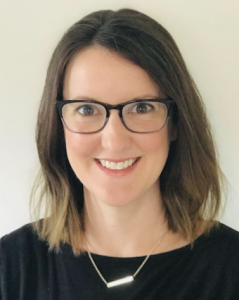Do you feel confident in your capacity to connect with children and support their development, but uncomfortable, frustrated, or underprepared when interacting with parents or caregivers? Do you recognize that when you’re on the same page with parents, you’re more effective with their children, and yet, so often you find this connection lacking? The reality is that the competencies that make us highly effective with young children rarely translate directly to effective interaction with adults. But, so much of working with children means also working with the adults in their lives. The purpose of this session is to build confidence and capacity for connecting with parents and supporting their development (because your work with their child is new to them too). This is not a standard family engagement session.
Instead, we will be digging into how parents learn, and more specifically how a parent’s perception or way of thinking about and seeing themselves, their child, and your work with them, heavily influences openness to new information and skills and even trust in your capacity and the plan to effectively support their child’s development. This session is for you if you want to further develop your capacity to communicate with parents, and to more effectively support parent learning and development as it relates to gaining new knowledge and skills necessary to support their child’s unique developmental needs.
Session objectives
In this session, participants will:
- Understand how parent learning and development is so different from that of young children, and why we need different skills and approaches to support parents as developing adult learners.
- Develop ways of recognizing the role perception plays in our connection with parents, and their receptivity to new knowledge and skills that will support their children’s specific developmental needs.
- Build confidence and capacity for communicating with parents so that every adult feels more fully engaged and ready to skillfully support the child in our care.
MN CoE innovations supported
EQIP
Intended audience
Home visitors, early interventionists, early childhood special educators, children’s teachers and care providers, social workers, and more. This session is specifically designed for anyone who works directly with children, and inevitably interacts with parents and caregivers. This session is also for anyone who works directly with parents, and wants to do so more effectively and with their development in mind.
Intended skill level
All skill levels are welcome.
Each session requires a minimum of 10 attendees to be held. If there are fewer than 10 registered for a specific session, you will be contacted and asked to select another session.
Instructor
 Heather Cline, PhD
Heather Cline, PhD
Heather Cline, PhD, is the founder of Hourglass Perspectives, LLC, a professional development company created to provide the training, curriculum, and community for using a Reflective Dialogue approach to promoting self-directed change in conceptual thinking and behavior. Dr. Cline manages the Reflective Dialogue Parent Education Design (RDPED), a research-based approach to promoting parent learning and development originally developed and field tested at the University of Minnesota. Heather is a former lecturer of the University of Minnesota’s parent and family education program where she dedicated eight years to preparing graduate students and pre-service licensed teachers in the areas of Parent Learning and Development, Parent-Child Interaction, and Teaching and Learning in Parent Education.
Her early career included working with parents, infants, and toddlers through ECFE as a licensed parent educator, and providing intervention-based services to children ages three through eight in both individual and group-based contexts. Today, when Heather is not working with educators on implementing a Reflective Dialogue approach, she is advocating for teachers and families through her involvement with the Minnesota Association for Family and Early Education (MNAFEE), and as a member of the advisory committee for the parent and family education program where she formerly taught.

